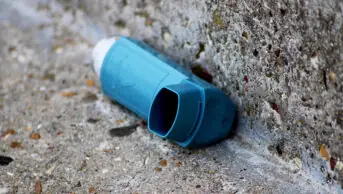
Shutterstock.com
The NHS in Scotland will test ways to eliminate pharmaceutical residues from hospital wastewater, according to its consultation draft climate emergency and sustainability strategy for 2022–2026.
The draft strategy says that NHS Scotland will trial methods to eliminate pharmaceutical residues from wastewater and prevent “harm to biodiversity”, as well as limit the growth of antimicrobial resistant bacteria.
According to the document, it is estimated that 30–90% of all medicines taken orally may result in active substances being excreted through urine into wastewater systems.
The trials will build on what has already been done at Caithness General Hospital to reduce the level of pharmaceutical residues in the hospital’s wastewater.
In January 2020, Caithness General became the first hospital in the world to be awarded the Alliance of Water Stewardship standard for its work to reduce the impact of pharmaceuticals on the environment.
“We want the processes used in the research [at Caithness General Hospital], and what has been learned, to be applied to hospitals and other healthcare sites nationally,” the consultation document said.
The draft strategy includes plans to “provide clinicians with the information they need to consider environmental impacts when prescribing”, as recently recommended by the Royal Pharmaceutical Society.
It pledges to update the Scottish Quality Respiratory Prescribing guide to help minimise over-use of inhalers and encourage greater use of less “environmentally damaging” inhalers, noting that some metered-dose inhalers “can have a global warming potential of 1430 or 3220 times greater than CO2”.
It also plans to support schemes in which patients can return inhalers to community pharmacies so that they can be disposed of cleanly.
In addition, NHS Scotland has pledged to bring forward its target date for achieving net-zero emissions by five years: from 2045 to 2040.
Clare Morrison, director for RPS Scotland, said that the Society “very much welcomes this consultation and will be putting together a response that takes into account our own sustainability policies and the views of our members”.
“It is vital that the many opportunities for pharmacy in all settings to make an impact are maximised so that together we can take much-needed action to tackle the climate emergency.”
A consultation on the strategy is now open and closes on 10 February 2022.
Green plans
Under the COP26 Health Programme, developed to reduce climate change and establish resilient healthcare systems, the health services of all four UK nations — alongside 47 other countries, including the United States and Germany — have committed to net-zero carbon emissions. Action plans include:
NHS England
- Committed to being net zero by 2045;
- Will require all NHS suppliers to publish a carbon reduction plan;
- Will publish a net-zero healthcare building standard.
NHS Scotland
- Committed to being net zero by 2045, with plans to bring this forward to 2040;
- Aiming for zero emissions of medical nitrous oxide by 2027;
- Plans for all NHS Scotland-owned buildings to use renewable heat by 2038.
NHS Wales
- Aims for NHS Wales and social care to be net zero by 2030; part of wider plans for the Welsh public sector to be collectively net zero by this time ;
- Will require plans for reducing emissions to be part of all new procurement contracts for major suppliers to NHS Wales;
- Plans for all NHS Wales new builds to use low carbon heating and for renewable energy to be generated on site by 2030.


